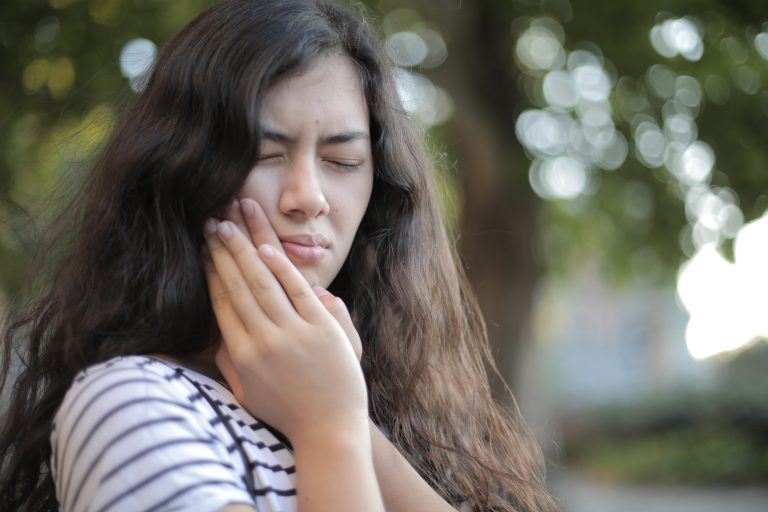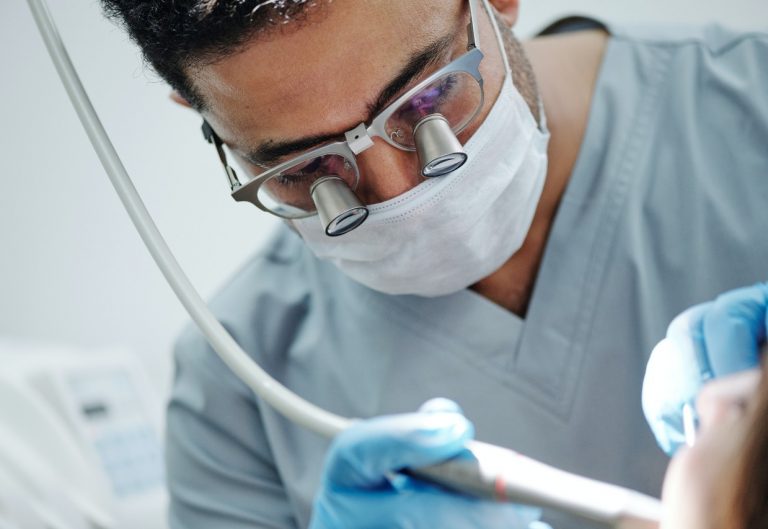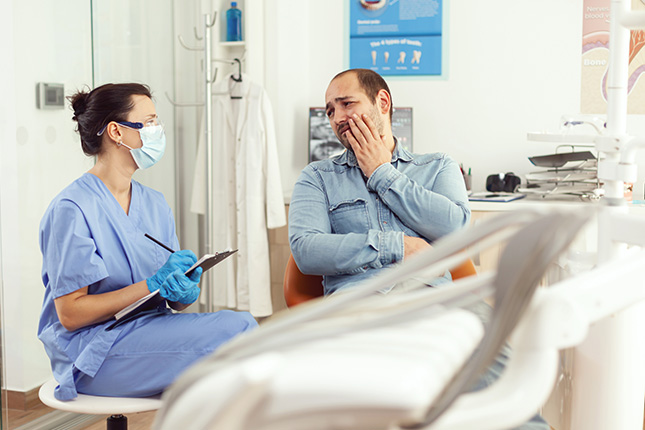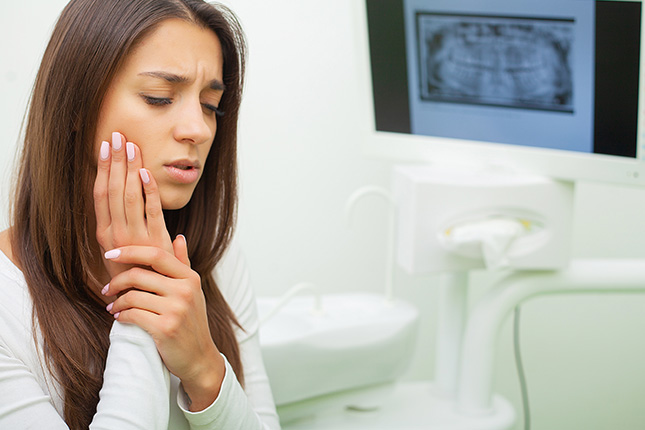Dental emergencies can strike when you least expect them, causing not only discomfort but also anxiety about the best course of action. Understanding how to respond in these situations is crucial for the well-being of your teeth and can make the difference between saving and losing a tooth. In Kingston, PA, Dr. Loren Grossman’s dental practice stands ready to provide expert emergency dental services, offering prompt, compassionate care in your hour of need. This guide will walk you through the essential steps to manage a dental crisis effectively, ensuring you’re prepared if the unexpected occurs.
Understanding Dental Emergencies
A dental emergency is any situation involving your teeth or gums that requires immediate attention. The urgency often stems from pain, discomfort, or risk to long-term dental health. Common examples include:
- Knocked-Out Teeth: This can occur due to accidents or sports injuries and requires swift action.
- Severe Toothache: Often indicating deeper issues like decay or infection, a severe toothache should never be ignored.
- Broken or Chipped Teeth: These can result from biting down on hard substances or facial trauma.
- Lost Fillings or Crowns: While less immediately dramatic, these too need prompt attention to prevent further damage or infection.
- Abscess or Serious Infection: These can be life-threatening if not treated quickly and may present as severe pain, swelling, or fever.
Each of these scenarios necessitates a different response, but all share a common need for timely professional care. It’s vital to understand that while some home remedies can provide temporary relief, they are not substitutes for professional treatment.
Immediate Steps to Take in a Dental Emergency
When a dental emergency strikes, the actions you take before reaching the dentist can be pivotal. Here are general guidelines for immediate care:
- Remain Calm: Panic can exacerbate the situation. Take a deep breath and assess the severity of the situation.
- Assess the Injury: Determine the nature of the emergency. Is there bleeding? Severe pain? A missing tooth?
- Control Bleeding: If there’s bleeding, gently apply pressure with a clean cloth or gauze. Avoid excessive force, especially if there’s a possibility of a broken jaw.
- Rinse with Warm Water: If the emergency involves a broken tooth, rinse your mouth with warm water to clean the area and reduce infection risk.
- Cold Compress for Swelling: Apply a cold compress to your cheek to reduce swelling and pain.
- Handle Knocked-Out Teeth with Care: If a tooth is knocked out, pick it up by the crown (the part that’s visible when it’s in place), not the root. If it’s dirty, gently rinse it with milk or saline solution, but don’t scrub it.
- Preserve the Tooth: Try to reinsert the tooth into its socket gently. If that’s not possible, keep it moist by placing it in milk or a saline solution. Avoid using tap water, as its chemical composition can damage the root surface cells.
- Over-the-Counter Pain Relief: For severe toothache, over-the-counter pain relievers can provide temporary relief. Avoid placing aspirin directly against the gums near the aching tooth, as this may burn the gum tissue.
- Call Your Dentist Immediately: Contact Dr. Grossman’s practice or your local emergency dentist as soon as possible. The sooner you get professional care, the better the chances of a favorable outcome.
- Prepare for Your Emergency Visit: Bring any preserved teeth or parts of teeth with you, and prepare to explain the situation in detail to your dentist.
In these first crucial moments, your actions can significantly impact the outcome of your dental emergency. Remember, quick thinking and prompt professional care are key.
Dealing with a Knocked-Out Tooth
One of the most serious dental emergencies is a knocked-out tooth. Acting quickly in this situation can mean the difference between saving and losing the tooth. If you or someone you’re with has a tooth knocked out, follow these steps:
- Handle the Tooth Properly: Pick up the tooth by the crown, not the root. Touching the root can damage cells necessary for bone reattachment.
- Clean the Tooth Gently: If the tooth is dirty, rinse it gently in milk or saline solution. Do not scrub it or remove any attached tissue fragments.
- Attempt Re-Insertion: Try to put the tooth back in its socket. Make sure it’s facing the right way. If it’s not possible, don’t force it.
- Keep the Tooth Moist: If you can’t reinsert the tooth, place it in a small container of milk, saline solution, or the person’s saliva. A tooth preservation kit, if available, is also an excellent option.
- Seek Dental Care Immediately: Time is of the essence. Ideally, the tooth should be re-implanted within an hour of being knocked out. Contact Dr. Grossman’s office or an emergency dental clinic right away.
Managing Severe Toothache
A severe toothache can be both debilitating and indicative of serious dental issues, such as infection or decay. Until you can get to the dentist, here are ways to manage the pain:
- Clean Your Mouth: Rinse your mouth with warm water. Use dental floss to remove any food caught between your teeth.
- Cold Compress: Apply a cold pack to the outside of your cheek to reduce pain and swelling.
- Pain Relievers: Take over-the-counter pain relief medication as directed. Avoid placing the medication directly onto the gums near the sore tooth.
- Avoid Certain Foods: Stay away from very hot or cold foods and drinks, as they can worsen the pain.
- See Your Dentist Quickly: Persistent toothache is a sign you should see a dentist as soon as possible. Contact Dr. Grossman’s office to arrange an emergency appointment.
What to Do with Broken or Chipped Teeth
A broken or chipped tooth can be alarming, but quick action can help prevent further damage. If you have a broken or chipped tooth, follow these steps:
- Rinse and Assess: Rinse your mouth with warm water. If there’s bleeding, apply gentle pressure with a piece of gauze.
- Save Any Pieces: If there are large pieces of the tooth that have broken off, save them. Rinse them and bring them to your dental appointment.
- Temporary Pain Relief: If the break has caused a sharp or jagged edge, cover it with a piece of wax paraffin or sugarless chewing gum to keep it from cutting your cheek, tongue, or lip.
- Cold Compress for Swelling: If there is swelling, apply a cold compress to the outside of your mouth.
- Seek Dental Care: Contact Dr. Grossman’s office or an emergency dentist. Even if the chip seems minor, it’s important to have it evaluated to prevent any further damage or infection.
Handling Lost Fillings or Crowns
If you find yourself with a lost filling or crown, it’s important to take immediate action to prevent further damage to your tooth and alleviate discomfort.
- Protect the Tooth: Without the filling or crown, your tooth may be sensitive to temperature and pressure. Cover the tooth with dental cement available at most pharmacies. In a pinch, sugarless gum can be a temporary solution, but avoid chewing on that side.
- Salvage the Crown: If your crown falls out, clean it carefully and store it in a safe place. In some cases, it can be reattached.
- Temporary Reattachment: You may temporarily reattach the crown with dental cement, denture adhesive, or toothpaste until you can see your dentist.
- Avoid Certain Foods: Stay away from hard, chewy, or sticky foods that could cause further damage or discomfort.
- Contact Your Dentist: Make an appointment with Dr. Grossman as soon as possible. Bring the crown or any pieces of the filling with you.
Abscesses and Infections: Urgent Care Needed
Dental abscesses and serious infections are conditions that require immediate attention, as they can lead to more significant health issues if left untreated.
- Identify the Symptoms: Be on the lookout for severe, persistent toothache, sensitivity to hot and cold, fever, swelling in the face or cheek, tender lymph nodes in your neck, or a foul taste in your mouth.
- Rinse with Saltwater: While waiting to see the dentist, rinse your mouth several times a day with a mild saltwater solution (1/2 teaspoon of salt in 8 ounces of water) to help reduce pain and draw the pus to the surface.
- Don’t Delay Treatment: An abscess or serious infection can spread to other parts of your body, leading to serious health complications. Contact Dr. Grossman’s office or seek emergency dental care immediately.
- Follow-Up Care: After the immediate issue is addressed, follow any prescribed treatment plan, including antibiotics and follow-up visits, to ensure the infection is completely resolved.
How Dr. Loren Grossman’s Practice Handles Dental Emergencies
At Dr. Loren Grossman’s dental practice in Kingston, PA, we are equipped to handle a range of dental emergencies with the utmost care and efficiency.
- Emergency Contact: Our practice offers an emergency contact number for patients to reach us quickly in case of a dental emergency.
- Prompt Response: We understand the urgency of dental emergencies and strive to provide same-day appointments to address these issues as quickly as possible.
- Comprehensive Care: Upon arrival, patients receive a thorough examination to assess the emergency, followed by immediate treatment to relieve pain and address the root cause of the issue.
- Follow-Up Support: After the emergency treatment, we provide detailed instructions for home care and schedule follow-up visits to ensure proper healing and recovery.
Prevention and Regular Dental Care
While emergency dental care is crucial, prevention is always preferable. Regular dental check-ups and good oral hygiene can significantly reduce the risk of dental emergencies.
- Routine Check-Ups: Regular visits to Dr. Grossman’s office allow for early detection and treatment of issues before they turn into emergencies.
- Oral Hygiene Education: During your check-ups, our team offers advice on maintaining optimal oral hygiene, including proper brushing, flossing, and diet.
- Protective Measures: For those who play sports, wearing a mouthguard can prevent traumatic dental injuries. Discuss with Dr. Grossman the best type of mouthguard for your needs.
- Avoid Harmful Habits: Discourage habits like chewing on ice or using teeth as tools, as these can lead to cracked or broken teeth.



